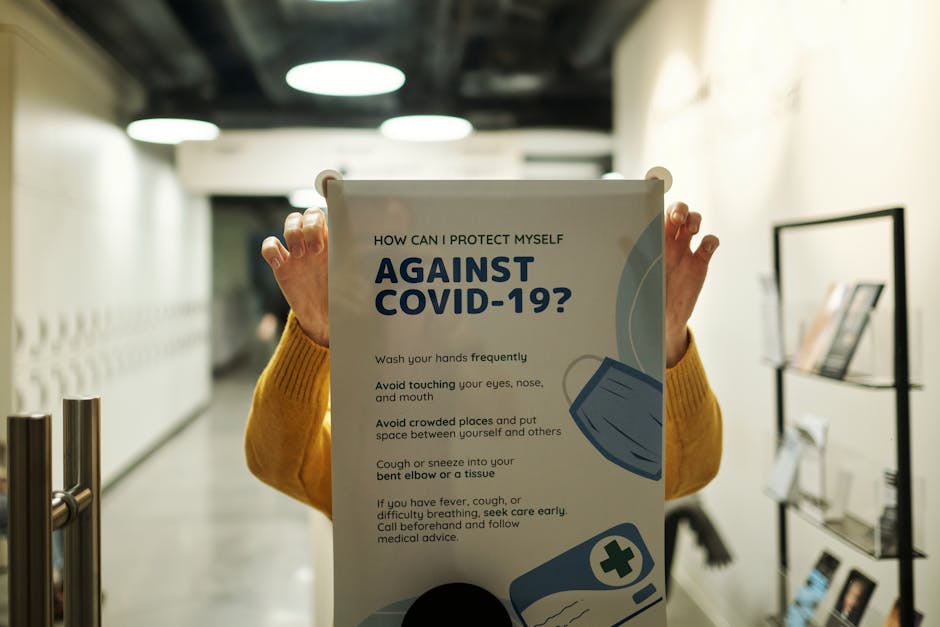Medical Tourism in Thailand: World-Class Healthcare and Tropical Recovery

Medical Tourism in Thailand: World-Class Healthcare and Tropical Recovery
Hey there, friend! Have you ever considered combining a vacation with addressing some health concerns? Sounds like a dream, right? Well, it's a reality for many people, and it's called medical tourism. And let me tell you, Thailand is quickly becoming a top destination for it. I've personally explored this option (though not as a patient, luckily!), and I'm excited to share my insights on why Thailand offers such a compelling blend of world-class healthcare and a stunning tropical escape.
Why Thailand for Medical Tourism? My Take

So, why Thailand, specifically? It's a question I get asked a lot. For me, it boils down to a few key factors:
- Cost-Effectiveness: Let's be honest, healthcare in many Western countries can be ridiculously expensive. Thailand offers comparable quality at a fraction of the price. We're talking potentially saving thousands of dollars on procedures, which is a huge deal.
- High-Quality Medical Facilities: Don't think that lower costs mean lower standards. Many hospitals in Thailand are JCI accredited (Joint Commission International), which is a gold standard in healthcare. They're equipped with cutting-edge technology and staffed by highly trained professionals, many of whom have received training in the US, UK, or Australia.
- Minimal Waiting Times: Unlike some countries where you might face long waiting lists for procedures, Thailand often offers much quicker access to treatment. This can be a lifesaver, especially for those needing urgent care or wanting to avoid prolonged discomfort.
- Tropical Paradise: Let's not forget the incredible allure of Thailand itself! Imagine recovering from a procedure on a beautiful beach, surrounded by lush greenery, and enjoying delicious Thai cuisine. It's a far cry from a sterile hospital room!
- Excellent Hospitality: The Thai people are known for their warmth, kindness, and genuine hospitality. This makes a huge difference when you're feeling vulnerable and need extra support.
Exploring the Range of Treatments Available

One of the things that impressed me most was the sheer variety of medical services available in Thailand. It's not just limited to a few specific procedures. You can find pretty much anything you're looking for.
Here's a glimpse of what's on offer:
- Cosmetic Surgery: Thailand is a popular destination for cosmetic procedures, ranging from facelifts and breast augmentation to liposuction and tummy tucks. The surgeons are highly skilled, and the prices are very competitive.
- Dental Care: From routine check-ups and teeth whitening to complex implants and reconstructive surgery, Thai dentists offer top-notch care at a fraction of the cost you might find at home.
- Orthopedic Surgery: Hip and knee replacements, spinal fusions, and sports injury treatments are all commonly performed in Thailand, often using advanced minimally invasive techniques.
- Cardiac Surgery: Heart bypass surgery, valve replacements, and other cardiac procedures are available in specialized cardiac centers with experienced surgeons and advanced equipment.
- Fertility Treatments: Thailand has become a sought-after destination for fertility treatments like IVF (in vitro fertilization) and other assisted reproductive technologies, offering hope to couples struggling to conceive.
- Stem Cell Therapy: While still considered relatively new, stem cell therapy is available for various conditions, including neurological disorders and autoimmune diseases. It's crucial to research this thoroughly and choose reputable facilities.
- General Health Check-ups: Many people travel to Thailand simply for comprehensive health check-ups. These packages often include a range of tests and screenings to identify potential health issues early on.
Important Note: Always do your research! Just because a treatment is available doesn't mean it's right for you or that all facilities are created equal. More on this later.
Choosing the Right Hospital or Clinic: My Tips

Okay, so you're considering medical tourism in Thailand. Awesome! But before you book your flight, it's crucial to do your homework. Choosing the right hospital or clinic is the most important step. Trust me on this one!
Here's my advice:
- Accreditation is Key: Look for hospitals with JCI (Joint Commission International) accreditation or other reputable international certifications. This ensures they meet global standards for patient safety and quality of care.
- Research the Doctors: Don't just look at the hospital. Research the individual doctors who will be performing your procedure. Check their credentials, experience, and specialization. Many hospitals have doctor profiles on their websites.
- Read Reviews and Testimonials: See what other patients have to say about their experiences. Online reviews can provide valuable insights into the quality of care, communication, and overall patient satisfaction. But take them with a grain of salt – some reviews might be biased.
- Contact the Hospital Directly: Don't rely solely on websites or third-party agencies. Contact the hospital directly and ask questions about the procedure, the costs, and the aftercare. See how responsive and helpful they are.
- Consider Using a Medical Tourism Facilitator (Carefully): A reputable medical tourism facilitator can help you navigate the process, arrange appointments, and provide translation services. However, be very careful when choosing a facilitator. Make sure they are transparent about their fees and affiliations, and that they prioritize your best interests. I would highly recommend checking credentials before working with one.
- Trust Your Gut: If something feels off, don't ignore your intuition. If you're not comfortable with a particular hospital or doctor, look elsewhere. Your health is too important to take risks.
What to Expect: A Glimpse into the Patient Experience

So, what's it actually like to undergo medical treatment in Thailand? Well, from what I've gathered, it's generally a very positive experience, but it's important to be prepared.
Here's a general idea of what you can expect:
- Initial Consultation: Before you travel, you'll typically have an initial consultation with the doctor, either online or in person. This is your chance to discuss your medical history, ask questions, and get a clear understanding of the procedure and the expected outcome.
- Arrival and Admission: Upon arrival in Thailand, you'll be greeted and transported to the hospital. The admission process is usually smooth and efficient.
- Treatment and Recovery: During your stay, you'll receive personalized care from a team of doctors, nurses, and other healthcare professionals. The quality of care is generally excellent. Recovery periods can vary, but most hospitals offer comfortable accommodations and support services to help you heal.
- Aftercare and Follow-up: After your treatment, you'll receive detailed instructions for aftercare and follow-up. Many hospitals offer ongoing support and communication to ensure you're recovering well.
- Enjoying Thailand (When Appropriate!): Depending on your procedure, you may be able to enjoy some of the sights and sounds of Thailand before or after your treatment. However, it's essential to prioritize your health and follow your doctor's recommendations.
My Observation: The emphasis on holistic well-being is quite noticeable. It's not just about the medical procedure; it's about creating a positive and supportive environment for healing. That's a big plus in my book!
Addressing the Concerns: Potential Challenges and How to Overcome Them

Okay, let's be real. Medical tourism isn't without its potential challenges. It's essential to be aware of these so you can plan accordingly.
Here are some common concerns and how to address them:
- Language Barrier: While many doctors and nurses in Thailand speak English, communication can still be a challenge, especially for complex medical issues. Consider bringing a translator or choosing a hospital that provides translation services.
- Cultural Differences: Thai culture can be different from Western culture in some ways. Be respectful of local customs and traditions. A little bit of research goes a long way.
- Travel Complications: Traveling long distances after a medical procedure can be risky. Make sure you're cleared to travel by your doctor, and take precautions to avoid complications like blood clots. Consider flying business class for extra comfort.
- Legal and Ethical Considerations: It's important to be aware of the legal and ethical implications of undergoing medical treatment in another country. Make sure you understand your rights and responsibilities.
- Post-operative Care Upon Return: You will want to make sure that you have a medical team back home, aware of the procedure you had overseas in case you require any assistance or have complications.
My Tip: Planning is your best friend! The more prepared you are, the smoother your experience will be. And don't be afraid to ask for help. There are many resources available to support medical tourists.
The Cost Factor: Breaking Down the Expenses

Alright, let's talk money! One of the biggest draws of medical tourism in Thailand is the cost savings. But it's important to understand all the expenses involved so you can budget accordingly.
Here's a breakdown of the potential costs:
- Medical Procedure: This is the main expense, and it can vary widely depending on the type of procedure and the hospital. Get a detailed cost estimate from the hospital before you travel.
- Travel and Accommodation: Factor in the cost of flights, accommodation, meals, and transportation. You might need to stay in Thailand for several weeks, so choose comfortable and convenient accommodations.
- Visa and Insurance: Make sure you have the necessary visa for Thailand. Some travel insurance policies cover medical tourism, but it's essential to check the details carefully.
- Medications and Supplies: You'll need to budget for any medications or medical supplies you'll need during your stay and after you return home.
- Contingency Fund: It's always a good idea to have a contingency fund for unexpected expenses, such as medical complications or extended stays.
My Experience: I was surprised at how transparent most hospitals are about their pricing. They're usually happy to provide detailed cost estimates upfront. However, it's crucial to compare prices from different hospitals and make sure you understand what's included in the estimate.
The Future of Medical Tourism in Thailand

From what I can see, the future of medical tourism in Thailand looks bright. The country continues to invest in its healthcare infrastructure, attract skilled medical professionals, and promote itself as a leading destination for medical travelers.
I believe we'll see even more innovation in the field, with hospitals offering personalized treatment plans, using advanced technologies, and focusing on holistic well-being. I also expect to see increased regulation and standardization to ensure patient safety and quality of care.
Ultimately, medical tourism in Thailand offers a compelling option for those seeking high-quality healthcare at an affordable price, combined with the opportunity to experience a beautiful and culturally rich country. It's a win-win, in my opinion, as long as you do your research, plan carefully, and prioritize your health and safety.
So, there you have it – my take on medical tourism in Thailand. I hope this has been helpful! Remember, it's a big decision, so take your time, weigh the pros and cons, and consult with your doctor before making any choices. Good luck on your journey to better health!
Post a Comment